Israeli airstrikes kill nearly 500 and injure 1,600, Lebanon says – in deadliest day for country since 2006
The israeli military says it has hit more than 800 targets linked to Hezbollah weapons as conflict escalates
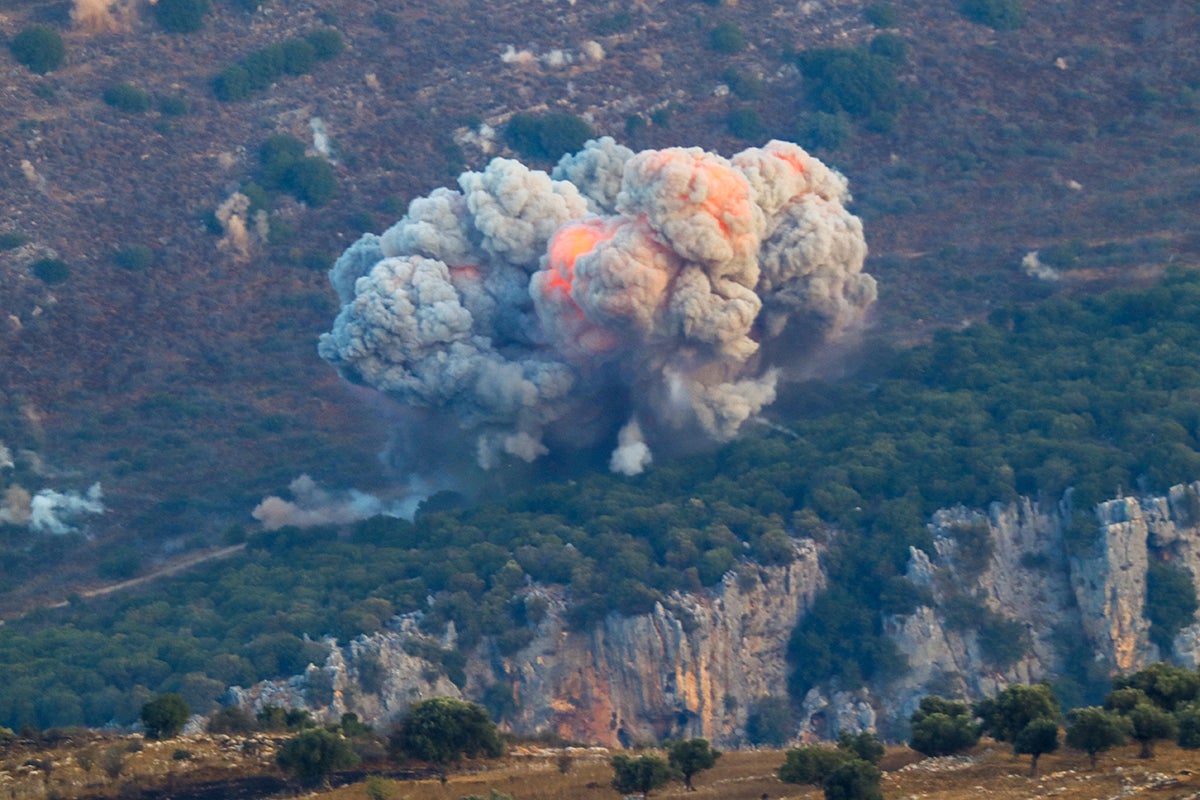
Israel has intensified its airstrikes against Hezbollah in Lebanon – killing nearly 500 people and injuring more than 1,600 others in the deadliest day for the country since the 2006 Israeli-Hezbollah war, health officials have said.
Children and women were among the dead, with thousands fleeing in cars, vans and pick-up trucks which were loaded with belongings and filled with people - sometimes several generations to a vehicle - fleeing the south to Beirut.
But the capital was barraged with a fresh wave of airstrikes later on Monday thought to be targeting senior Hezbollah commander Ali Karaki, the head of the southern front.
Hezbollah later made a statement claiming he survived the onslaught: “Ali Karaki is fine and God willing is in full health and wellness. He has been transported to a safe area.”
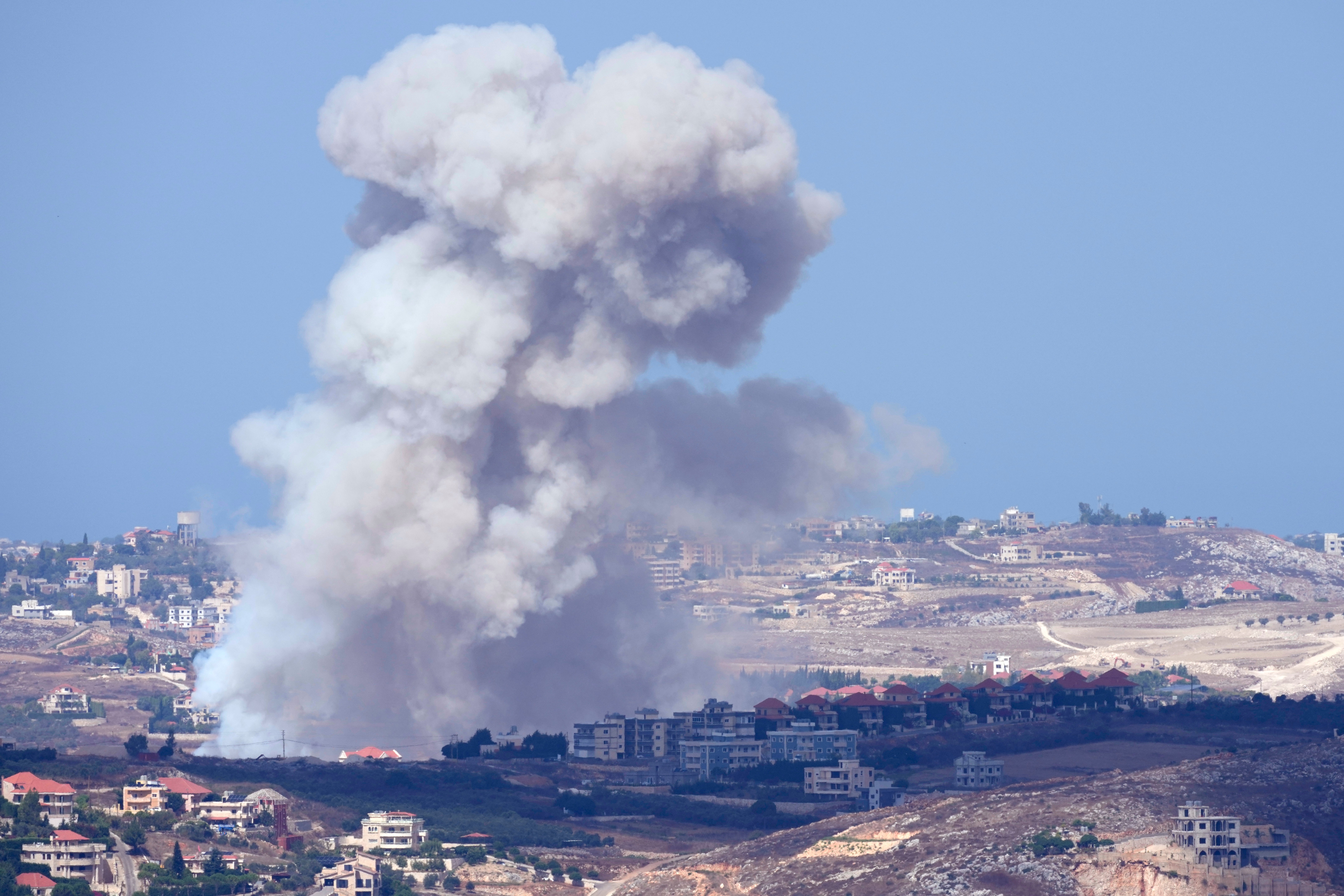
Health minister Firass Abiad told a news conference that the strikes in Lebanon hit hospitals, medical centres and ambulances. The government ordered schools and universities to close across most of the country and began preparing shelters for people displaced from the south.
Israel’s aerial bombardment marked the most widespread strikes in nearly a year of cross-border fire triggered by the war in Gaza. Lebanon’s health ministry said at least 492 people had been killed, including 35 children, and 1,645 wounded. One Lebanese official said it was Lebanon’s highest daily death toll from violence since the 1975-1990 civil war.
One strike hit a wooded area as far away as Byblos in central Lebanon, more than 80 miles from the border north of Beirut. In response, Hezbollah fired dozens of rockets into Israel, having launched more than 100 on Sunday.
The airstrikes have intensified pressure on Hezbollah, which last week suffered an attack its leader Hassan Nasrallah called “unprecedented in the history” of the group after thousands of pagers and walkie-talkies used by its members exploded.
The operation was widely blamed on Israel, and its spy agency Mossad, but Israeli officials have not confirmed or denied responsibility.
In another major blow, an Israeli airstrike on Beirut’s southern suburb on Friday targeted senior Hezbollah commanders, killing 45 people, according to the Lebanese health ministry.
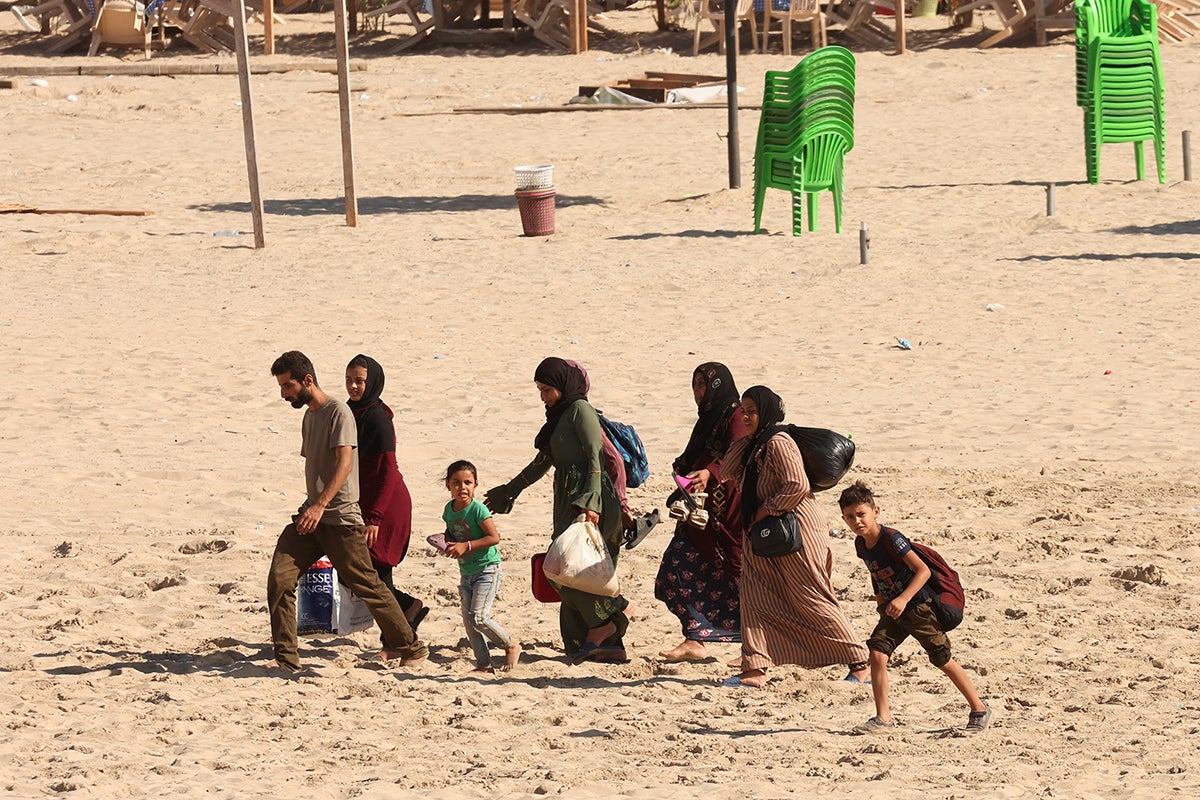
Hezbollah said 16 members of the group were among the dead, including senior leader Ibrahim Aqil and another commander, Ahmed Wahbi.
On Monday afternoon, Israeli military spokesperson Rear Admiral Daniel Hagari repeated warnings urging residents to immediately evacuate areas where Hezbollah is storing weapons, including in the valley. The warnings left open the possibility that some residents could live in or near targeted structures without knowing they are at risk.
Prime minister Benjamin Netanyahu warned the people of Lebanon to “get out of harm’s way” in a video address, saying: “Israel’s war is not with you. It’s with Hezbollah. For too long, Hezbollah has been using you as human shields.
“It placed rockets in your living rooms and missiles in your garage. Those rockets and missiles are aimed directly at our cities, directly at our citizens.
“Once our operation is finished, you can come back safely to your homes.”
The events have pushed an already simmering region to the brink of full-scale war, with concerns the attack might be a precursor to an Israeli ground incursion into Lebanon. The threat of an all-out war has spiked in recent weeks, after nearly a year of clashes sparked by the Israeli war against another Tehran ally, Hamas, in Gaza.
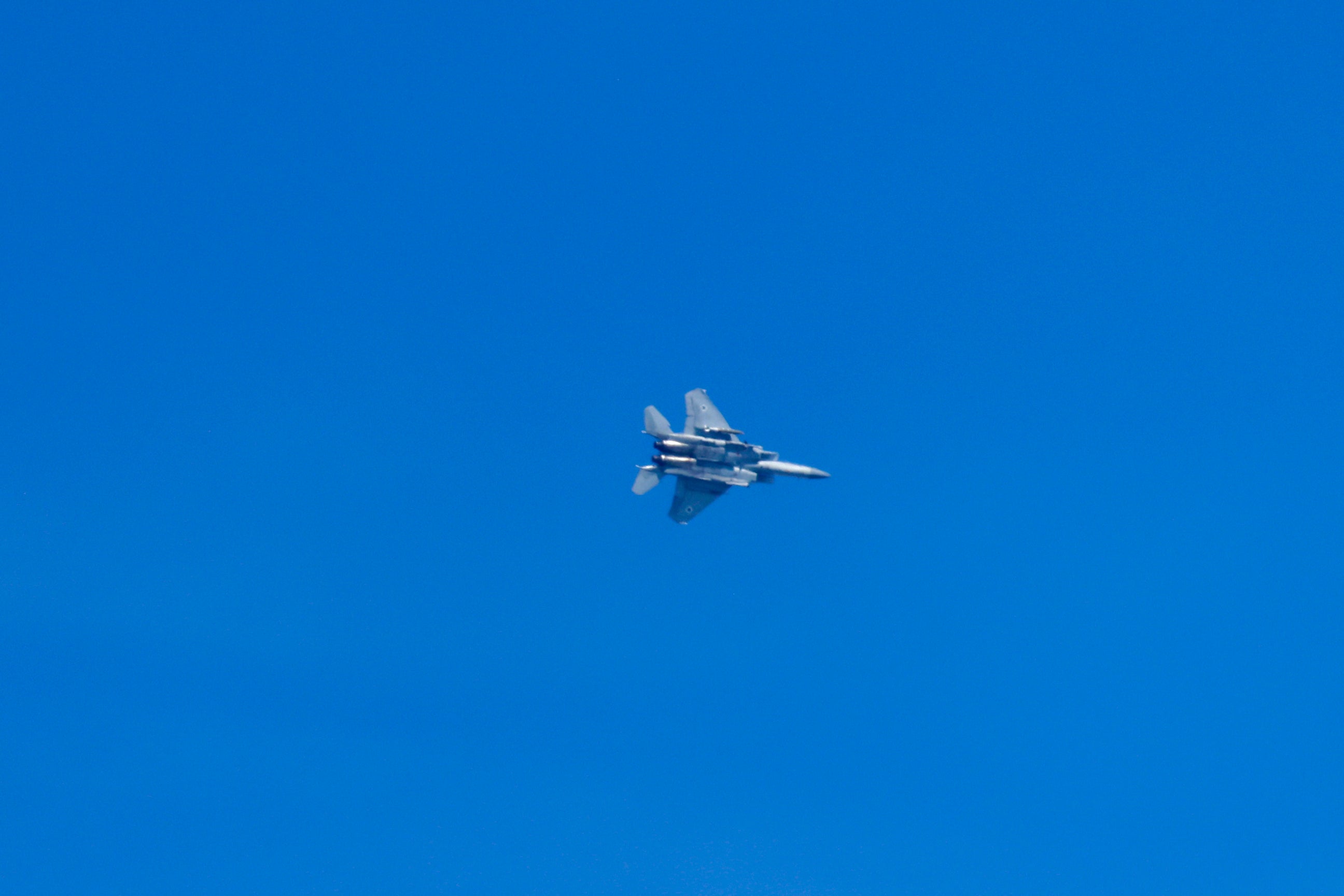
The US, which has 40,000 soldiers in the region, announced it is sending additional troops to the Middle East during a sharp spike in violence.
It came as Iran’s president accused Israel of seeking a wider war in the Middle East and laying “traps” to lead his country into a wider conflict.
Masoud Pezeshkian told reporters while Israel insists it does not want a wider war, it is taking actions that show otherwise.
“They are dragging us to a point where we do not wish to go,” the Iranian leader said of Israel. “There is no winner in warfare. We are only fooling ourselves if we believe that.”
However, an Israeli military official told the Associated Press that Israel is focused on aerial operations and has no immediate plans for a ground operation. The official, speaking on condition of anonymity in keeping with regulations, said the strikes are aimed at curbing Hezbollah’s ability to launch more strikes into Israel.
The Lebanese Health Ministry put the death toll of the strikes at at least 274, including 21 children and 31 women. Another 1,024 were wounded. It asked hospitals in southern Lebanon and the eastern Bekaa Valley to postpone surgeries that could be done later. The ministry said in a statement that its request aimed to keep hospitals ready to deal with people wounded by “Israel’s expanding aggression on Lebanon”.
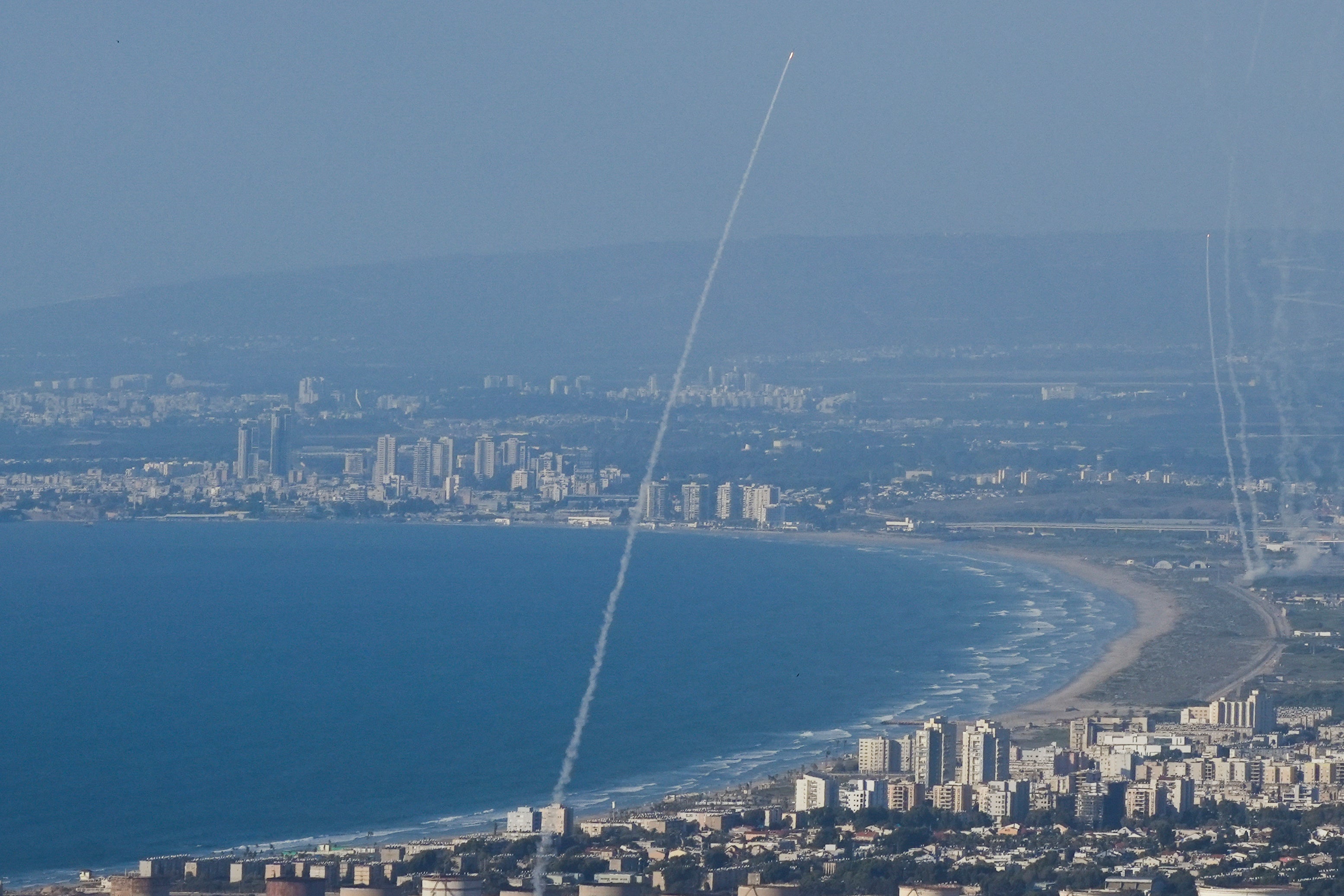
Imad Kreidieh, the head of Lebanese telecoms company Ogero, told Reuters on Monday that more than 80,000 automated calls asking people to evacuate their areas were detected on the network.
Israel’s defence minister Yoav Gallant said the actions would continue until “we achieve our goal to return the northern residents safely to their homes,” setting the stage for a long conflict as Hezbollah has vowed to fight on until there is a ceasefire in Gaza.
The fighting has raised fears that the US, Israel’s close ally, and Iran will be sucked into a wider Middle East war. Iran’s foreign ministry spokesperson Nasser Kanaani condemned the Israeli strikes. “There will be dangerous consequences,” he said.
The current Israeli conflict with Hezbollah was ignited a day after Hamas launched its attack inside Israel on 7 October, killing around 1,200 people and leading to 251 more being taken hostage. Israel’s ensuing aerial and ground assault on Gaza has killed more than 41,000 Palestinians, according to the local health ministry, and displaced more than 90 per cent of the population.
In the eastern Beirut district of Sassine, state employee Joseph Ghafary said he feared Hezbollah would respond to Israel’s intensified strikes and that a full-blown war would break out.
“If Hezbollah carries out a major operation, Israel will respond and destroy more than this. We can’t bear it,” he said.
“Israel wants to strike, it wants to keep going, meaning it is squeezing Sayyed Hassan (Nasrallah) to start a war. It is definitely dangerous.”
Mohammed Sibai, a shopowner in the Beirut neighbourhood of Hamra, told Reuters he saw the escalation in strikes as “the beginning of the war”.
“If they want war, what can we do? It was imposed on us. We cannot do anything,” he said.
Reuters and Associated Press contributed to this report
Join our commenting forum
Join thought-provoking conversations, follow other Independent readers and see their replies
Comments
Bookmark popover
Removed from bookmarks